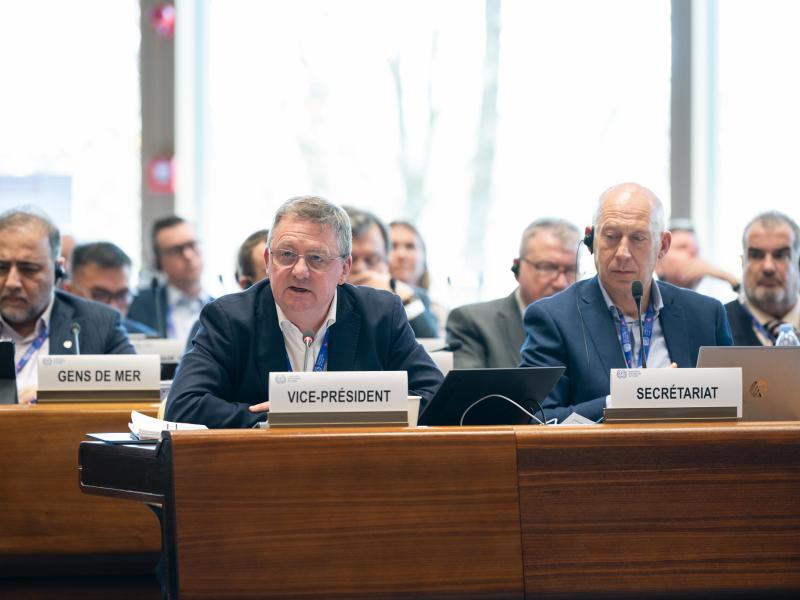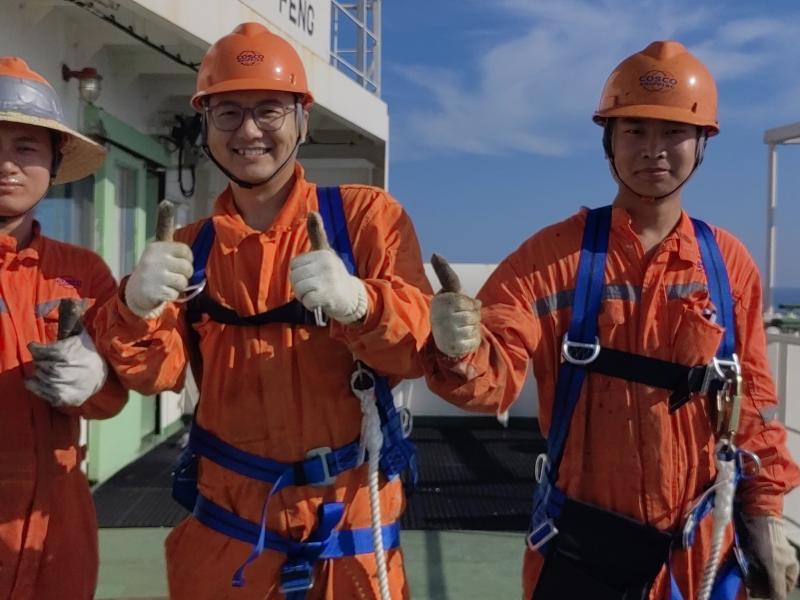At the International Transport Workers’ Federation (ITF) we are using today’s World Day of Social Justice to shine the spotlight on some of the trade unionists from transport unions persecuted around the globe.
Union activists often pay a high price simply for defending the rights and dignity of those who keep our world moving, and we resolutely condemn the persecution of trade unionists and call for the immediate release of those unjustly detained or exiled.
Stephen Cotton, ITF General Secretary said: “An attack on trade unionists is an attack on us all. The global labour movement stands together today, and every day of every year, with those who suffer at the hands of anti-democratic governments because of their trade union activities. The collective power of trade unions is the most potent counterforce against those things in society which cause division. This is what we mean in the movement when we say ‘An injury to one, is an injury to all’.”
A dire global backdrop
The latest figures from the ITUC Global Rights Index reveal a stark reality:
- 87% of countries violate the right to strike.
- 79% of countries infringe on the right to collective bargaining.
- 74% of countries obstruct or refuse to register unions.
- 43% of countries restrict free speech and assembly.
Transport workers and their unions often bear the brunt of these violations. Criminalisation, retaliation, and targeted attacks on union leaders remain rampant worldwide.
Wrongful detention and exile of transport unionists
Carol Ng, Hong Kong
Carol Ng, a former chairperson of the now-defunct Hong Kong Confederation of Trade Unions (HKCTU) and vocal advocate for transport and aviation workers, has become a prominent symbol of ongoing crackdowns in Hong Kong. Carol was a member of the now closed British Airways cabin crew base in Hong Kong and General Secretary of the British Airways Hong Kong International Cabin Crew Association (BAHKICCA), an ITF affiliate.
On 19 November 2024, Carol was sentenced to four years and five months’ imprisonment under the sweeping National Security Law, convicted—along with dozens of other pro-democracy figures—of “conspiracy to commit subversion” for participating in democratic primaries in 2020.
Hong Kong Labour Rights Monitor (HKLRM) has slammed these sentences, calling them a “repression of Hong Kong people’s pursuit of democracy” that “blatantly deprives them of their civil rights.” According to HKLRM, the convictions and sentences—some as long as ten years—violate international law.
HKLRM’s executive director, Christopher Mung, describes the National Security Law as “weaponised by the authoritarian government” to silence civil society. He continued “This is a critical time for the international community to show solidarity and demand the immediate release of these individuals and other political prisoners. With most trade unions, civil society groups, and oppositional political parties unable to operate… we must not remain silent.”
Carol Ng’s own words from her court mitigation highlight her unwavering belief in peaceful, legislative means to create better outcomes for Hong Kong’s workers:
“Participating in the primary election was a means to enter the legislature, to allow workers to share in the fruits of socio-economic development and to protect labour rights, not to subvert the state.”
Despite the severe risks, Carol Ng’s courage exemplifies the determination of transport union activists. Her prolonged detention underscores the stark dangers faced by individuals who champion collective bargaining and union freedoms in repressive environments.
Sticks Nkambule, Eswatini
In Eswatini—cited by the ITUC as one of the most dangerous countries for workers—union leaders are routinely harassed, detained, or forced into hiding. Sticks Nkambule, General Secretary of the Swaziland Transport, Communication and Allied Workers’ Union (SWATCAWU), remains in exile after authorities placed him on a “wanted” list amid brutal crackdowns. Two years have now passed since an attempt on Sticks’s life, a grim anniversary underscoring Eswatini’s toxic climate for trade union activism.
In a recent statement marking this anniversary, the ITF condemned the “outrageous assault on freedom of association,” demanding that the trumped-up charges against Nkambule be dropped immediately.
ITF President Paddy Crumlin stated: “That Comrade Sticks remains in exile on trumped-up, politically motivated charges is an outrageous assault on freedom of association and the dignity of every worker… We reject these acts of repression outright and demand immediate redress.”
At the ITF’s 46th Congress in Marrakech, delegates unanimously passed Resolution A08 committing the federation to sustain unwavering solidarity with SWATCAWU.
“No matter how brutal the dictatorship or how long the fight, the ITF will never abandon our comrades in Eswatini,” Crumlin concluded. “Together, we will bring down the walls of tyranny, so that every worker can live and work free from fear in a truly democratic Eswatini.”
Ebrahim Madadi and Davood Razavi
In Iran, the Tehran Bus Workers’ Syndicate has long been a prime target for government repression. Retired workers Ebrahim Madadi and Davood Razavi, both pivotal figures in the Syndicate, remain unjustly imprisoned because of their trade union activism.
Ebrahim Madadi, formerly Vice President of the Syndicate of Workers’ of the Tehran and Suburbs Bus Company, was arrested again on 11 August 2024. His legal troubles date back years, marked by repeated detentions for defending workers’ rights. Previously, he faced a three-and-a-half-year sentence on similarly unfounded charges. He was also charged for organising a May Day 2015 event, which initially resulted in five years and three months’ imprisonment—later reduced to one year by the Supreme Court. Despite serious health issues authorities have decided to carry out his sentence.
Davood Razavi, a member of the Syndicate’s board of directors, was arrested on 27 September 2022 for his trade union activities and for meeting with French union representatives. He endured four months of solitary confinement under intense interrogation.
After trial, Razavi was handed a five-year prison sentence plus a two-year ban on trade union activities, which was upheld on appeal. He is currently serving his term in Evin Prison and recently required hospital treatment for medical issues.
These cases are emblematic of broader systemic repression. Simply meeting with fellow trade unionists or trying to celebrate International Workers’ Day has been recast as a criminal offence by Iranian authorities. The Syndicate’s leadership has repeatedly denounced the state’s persecution.
The right to union activities: non-negotiable
At our 46th Congress meeting in Marrakech last October, ITF committed to our belief that labour rights and trade union rights are human rights. Attacks on labour rights around the world, including fundamental principles and rights at work, erode democracy and fuel division between workers.
Today, on this World Day of Social Justice, we stand with all persecuted trade unionists. We reaffirm our commitment to speak out, to act, and to unyieldingly defend the fundamental rights of transport workers worldwide.
We call on:
- Governments worldwide to demand an end to political prosecutions and the repealing of draconian, punitive legislation used to persecute trade unionists.
- International organizations to intensify scrutiny and take strong, unambiguous actions—diplomatic, legal, or otherwise—to safeguard labour activists like Carol Ng, Sticks Nkambule, Ebrahim Madadi, and Davood Razavi.
“Workers’ rights are the bedrock of social justice—without them, democracy cannot thrive,” said Crumlin. “The solidarity of the global labour movement is our greatest defence against oppressive regimes, and today, we reaffirm our commitment to stand shoulder to shoulder with every single trade unionist facing persecution. We will not rest until each one is free.”



